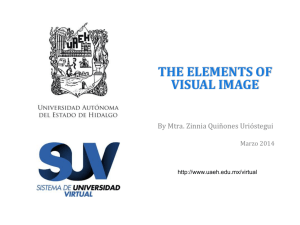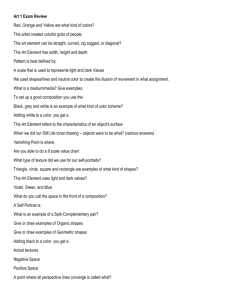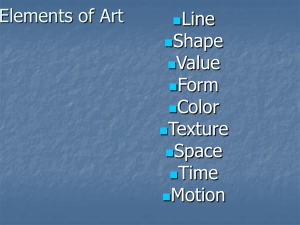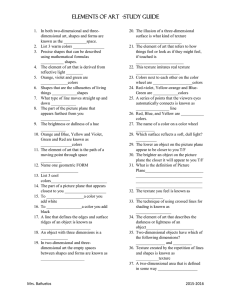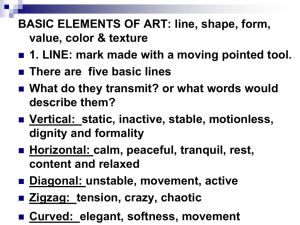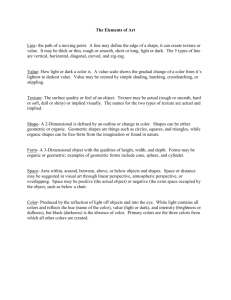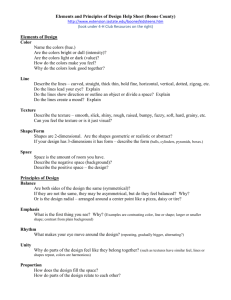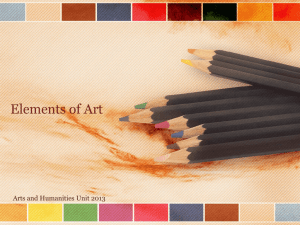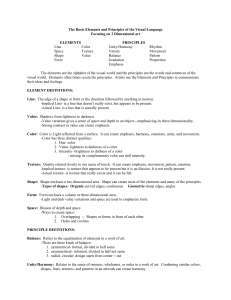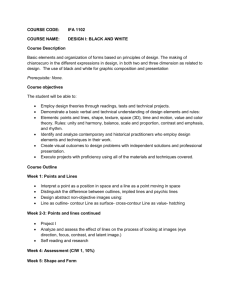Elements of Art & Principles of Design Presentation
advertisement
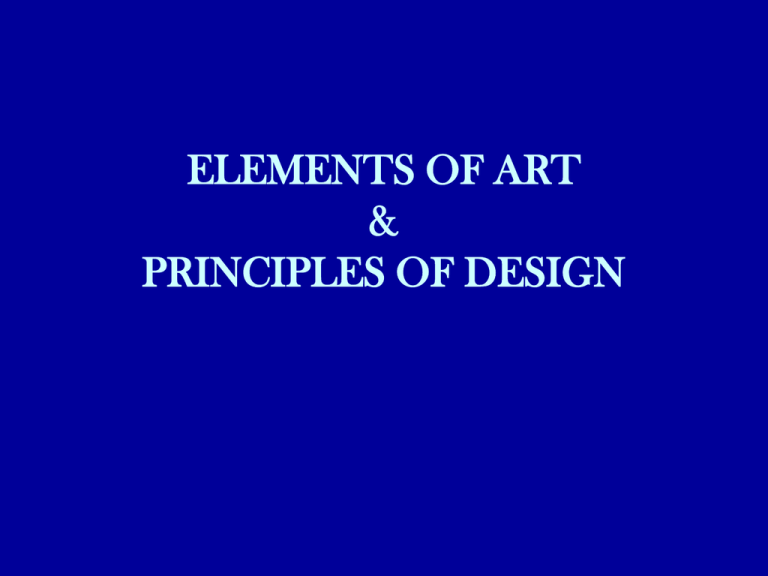
ELEMENTS OF ART & PRINCIPLES OF DESIGN The elements and principles of design are the building blocks used to create a work of art. The elements of design can be thought of as the things that make up a painting, drawing, design etc. Good or bad - all paintings will contain most of if not all, the seven elements of design. The Principles of design can be thought of as what we do to the elements of design. How we apply the Principles of design determines how successful we are in creating a work of art. SEVEN ELEMENTS OF ART LINE TEXTURE VALUE COLOR SHAPE SPACE FORM LINE A thin mark on a surface created by a pencil, pen, brush, or other tools. There are many types of lines. Lines can be joined together to create shapes. Lines are used to define shape, contours, and outlines and also used to suggest mass and volume. It may be may be a continuous mark made on a surface with a pointed tool or implied by the edge of shapes and forms. COLOR PRIMARY COLORS RED, YELLOW, BLUE SECONDARY COLORS INTERMEDIATE COLORS COMPLEMENTARY COLORS Helen Frankenthaler Bay Side (1967) Acrylic on Canvas The Golden Wall Hans Hofmann 59½ x 71½" Oil on Canvas 1961 The Art Institute of Chicago Claude Monet. Haystack at the Sunset near Giverny. 1891. Oil on canvas. Museum of Fine Arts, Boston, MA, USA Claude Monet, Impression: Sunrise (1872): oil on canvas Emil Nolde Still Life, Tulips (1930) Watercolor on paper Judy Pfaff Voodoo (1981) Contact paper collage on mylar TEXTURE The surface quality of an object. Real Texture The actual texture of an object. Artists may create texture in art to give it a visual interest or evoke feeling Implied Texture A two-dimensional piece of art is made to look like a certain texture but is in fact just a smooth piece of paper. SHAPE FORM SPACE SHAPE Any two-dimensional image or element that is used in the artwork FORM An object that has three dimensions. SPACE The perception of depth or dimension. It defines whether objects are in front or behind other objects, are situated around them, or projects from them. Shapes found in nature with characteristics that are free flowing, informal and irregular. Positive Shapes & Negative Shapes Static Shape Shapes that appear stable and resting Dynamic Shape Shapes that appears moving and active LINEAR PERSPECTIVE One-Point Linear Perspective Two-Point Linear Perspective VALUE The element of art and design dealing with the lightness and darkness of color in an artwork. A color can be darkened by adding black that results in a shade of that color. A color can be lightened by adding white that results in a tint of that color. There are many elements of art that are involved in creating, that an artist uses or manipulates to create artwork. A. Choose three elements of art and define them. B. Using the three elements that you defined, describe how the Picasso uses or manipulates each one in “The Old Guitarist”.

